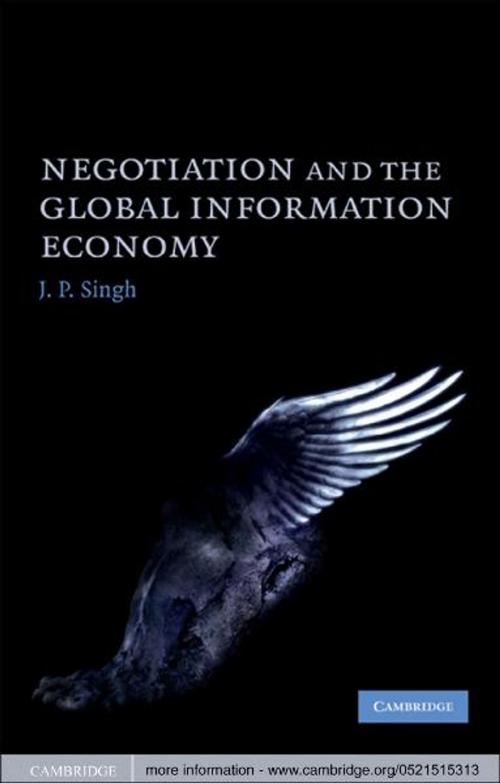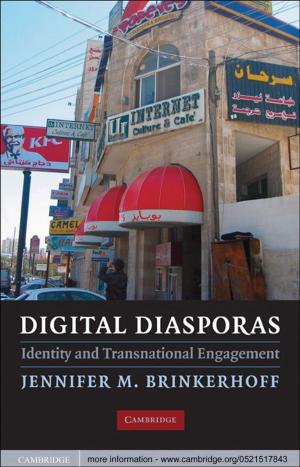Negotiation and the Global Information Economy
Nonfiction, Social & Cultural Studies, Political Science, International, International Relations| Author: | J. P. Singh | ISBN: | 9780511737275 |
| Publisher: | Cambridge University Press | Publication: | November 20, 2008 |
| Imprint: | Cambridge University Press | Language: | English |
| Author: | J. P. Singh |
| ISBN: | 9780511737275 |
| Publisher: | Cambridge University Press |
| Publication: | November 20, 2008 |
| Imprint: | Cambridge University Press |
| Language: | English |
What role do diplomacy and negotiations play in economic globalization? Many argue that great powers shape diplomacy to their advantage, others that, in a 'flat world', diplomacy helps everyone. Going beyond these polarized views, this book explores the conditions under which negotiations matter and the ways in which diplomacy is evolving in the global commercial arena. J. P. Singh argues that where there is a diffusion or decentralization of power among global actors, diplomacy can be effective in allowing the adjustment of positions so that mutual gains will result. In contrast, when there is a concentration of power, outcomes tend to benefit the strong. There will be little alteration in perception of interest, and coercion by strong powers is common. Singh's book suggests that there are possibilities for transformational problem-solving through multilateral diplomacy. Empirically, the book examines the most important information-age trade issues.
What role do diplomacy and negotiations play in economic globalization? Many argue that great powers shape diplomacy to their advantage, others that, in a 'flat world', diplomacy helps everyone. Going beyond these polarized views, this book explores the conditions under which negotiations matter and the ways in which diplomacy is evolving in the global commercial arena. J. P. Singh argues that where there is a diffusion or decentralization of power among global actors, diplomacy can be effective in allowing the adjustment of positions so that mutual gains will result. In contrast, when there is a concentration of power, outcomes tend to benefit the strong. There will be little alteration in perception of interest, and coercion by strong powers is common. Singh's book suggests that there are possibilities for transformational problem-solving through multilateral diplomacy. Empirically, the book examines the most important information-age trade issues.















